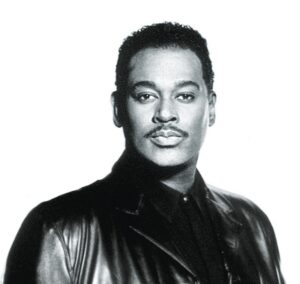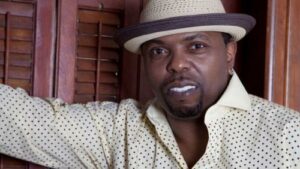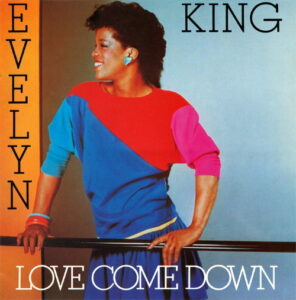It was a big, unexpected surprise to witness gospel veteran Marvin Sapp burst from the shadows and into the mainstream of pop culture. While the modestly successful soloist was once a background member of the impressive urban gospel group Commissioned, one of the few best-selling Christian acts of that age, nothing prepared anyone for Sapp being touched by chart-topping, crossover fame. All of which is, of course, thanks to the unpredicted radio push for "Never Would Have Made It" from Sapp’s seventh solo project, Thirsty. With one hit, Sapp set and shattered career records that felt unimaginable for a gospel singer, particularly for a 25-year veteran. The natural question for his latest release, Here I Am, is can Sapp do it again and will the lead single "The Best In Me" do for this project what "Never Would Have Made It" did for his last?
What exactly did "Never Would Have Made It" do for Thirsty and Reverend Sapp? Well, for starters it gave Sapp his first #1 Billboard Gospel hit as a solo artist. Though the album stalled at #28 on the Billboard 200, that’s the POP chart for the uninitiated, it remained on the chart for 81 weeks. The single also spent 56 weeks on the Hot R&B/Hip-Hop Songs chart; becoming the longest running single in all of Billboard’s genre history. It became the first million-selling ring tone in the gospel industry. Even now, Thirsty is well on his way to reaching platinum status after already selling well over 700,000 units.
Unfortunately, the album’s follow-up to the megahit was, "Praise Him In Advance," a track that left more to be desired from Sapp. Relegated to gospel radio, it was an apparent detour from the soulful, gutsy powerhouse sounds listeners had grown to expect from the new household name. The album wasn’t much better, harnessed together by the somber pageantry of slow praise-and-worship offerings. Despite the success of "Never Would Have Made It," Thirsty missed the mark from being a standout entry; leaving Sapp and his backers on the defense, pressured to fire up a worthy follow-up to Sapp’s once-in-a-lifetime opportunity, and with the quickness.
Two years later, now a little "wiser, stronger and better," Sapp returns with Here I Am. This latest release once again unites him with producer Aaron Lindsey (Israel Houghton) and background support from Myron Butler & Levi.
Some of the mechanics from Thirsty are obvious to the ear: the snappy up-tempo workouts opening the set, the bigger ballads tucked in the back and another larger-than-life live experience swarming with the smoke of a Sunday morning worship service. Nonetheless, Sapp has shaken things up on Here I Am, sometimes even for the better. The songs are less predictable, more energized and better developed. While the gospel balladeer scores major points with smooth, inspirational numbers ("Don’t Count Me Out," "Comfort Zone," "Here I Am"), he also manages to work in a few energetic sparklers on this set, particularly the funky disco opener "I Came" and the old school R&B of "Wait." Another favorite, "Keep Holding On," flexes a nice mix of ‘90s contemporary gospel and Lady Gaga-esque galactic synths that could easily land on both urban AC and gospel radio. He’s even heard conjuring the Detroit churchy funk of Fred Hammond on the upbeat "Fresh Wind." Towards the end of the track, Sapp lets himself loose, going in on a sweaty showcase that sounds like James Brown going gospel.
The majority of the attention for Here I Am will surround "The Best In Me," the project’s most poignant and greatest reward. Certainly, there are enough echoes of "Never Would Have Made It" to make "The Best in Me" a predictable reprise, the B-side to the former hit, if you will. Still, if it’s not broke, don’t fix it. And, for his part, Sapp does find a refreshing lyric ("He saw the best in me/When everyone else around could only see the worst in me") while still milking the simplicity of the song with his sermonic ad-libs.
Arguably, Here I Am is a better album than Thirsty. While it is carefully calculated in trying to mimic the formulaic success of its predecessor, it’s not an obvious rehash of some of that project’s passable, but forgettable selections. Here I Am escapes the ennui of Thirsty’s segueing of one slow, exhaustive worship song after another. The new songs here are injected with more musical freedom, livelier arrangements and Sapp’s innate ability to sell the lyrics, setting a new standard for the kind of material new listeners and fans should expect from him after "Never Would Have Made It." Even when Sapp takes on the Kings of Leon pop-rock with "Praise You Forever," an attempt to regulate his gutsy vocals into something more subdued, Sapp still demonstrates he isn’t afraid to take a few risky chances without selling out. If Thirsty was Sapp’s introduction to the mainstream, the public best be prepared to be re-introduced. Recommended.
By J. Matthew Cobb










